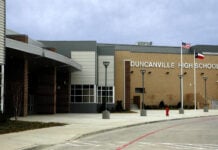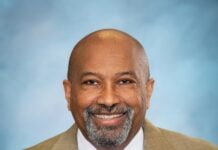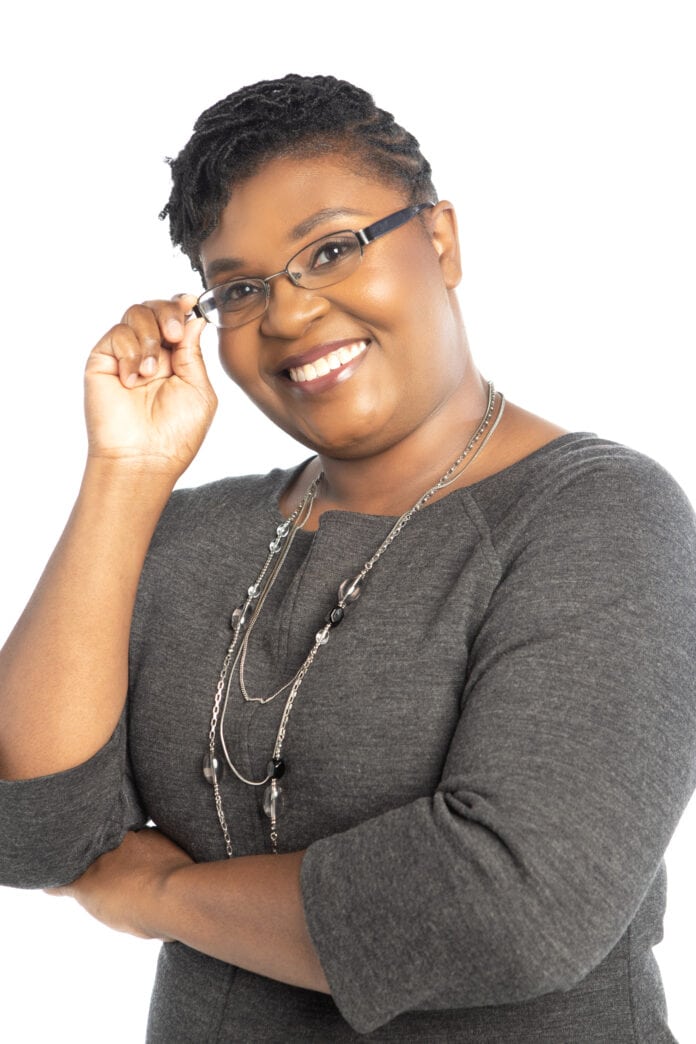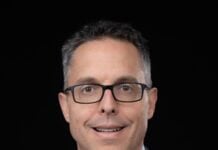Why are you running for school board, and what are your qualifications?
I recognize that the public education system is continuously changing and that our community needs trustees who will prioritize the scholars of CHISD and advocate for the public education system. As a parent, community leader, and advocate, I am passionate about public education and empowering our parents and enhancing our community by sharing the stories of the heart and soul of our schools.
I have served and advocated for the educational needs of our scholars as a Parent Teacher Association (PTA) member and as the President of the Cedar Hill Council of PTAs. As the Council President, I gained valuable practical experience in leading groups of parents, teachers, and administrators in advocating for the best interests of the school community, as well as being inside the schools and seeing firsthand what pain points need attention. I believe that my education and professional experience have equipped me with a range of skills that can benefit the school board, including strong communication skills, strategic thinking, relationship building, and effective advocacy. With my background and knowledge of my district, I can help to provide the necessary leadership to place and keep the district on solid ground.
Have you received any donations or endorsements from any group(s)? If so, which groups?
I have been officially endorsed by the 23rd Senatorial District Tejano Democrats and Run for Something.
Is there a specific issue that motivates you to serve on the school board? If so, please identify the issue and your concerns.
I feel very strongly that CHISD needs an increase in three key items that all correlate to one another. We need greater and more effective community engagement to keep our families and communities informed and active in our district’s happenings. We need active advocacy and representation for our scholars, parents, and teachers to provide them with the best learning and teaching environment. And we need to educate and empower our parents so that we are truly serving the needs of our communities as completely as we are able.
In what school district or community activities/organizations have you been involved?
I have served in various executive board positions in my local PTAs, and as the Cedar Hill Council of PTAs President. I currently serve on: Texas PTA Advocacy Committee; Cedar Hill Chamber of Commerce Ambassador and Education Committees; Cedar Hill Education Foundation as an ex-oficio Member; AmeriCorps Member for the Girls Scouts of Northeast Texas and Big Brothers Big Sisters; Texas Women’s Foundation Grants Committee; Mocha Moms, Inc., DFW South President; Mom Congress 2020-2023.
What attributes and behaviors are essential for school board members?
A school board trustee must exemplify the ethics, morals, and values of the district in which they serve. We must be willing and eager to collaborate with diverse groups of people who may not always have the same vision or perspectives. We must be diligent and steadfast in our commitment to serving our scholars and community family to the best of our ability. We must have a true passion for education and the effective training of our future leaders. And we must truly value the capabilities and contributions of our constituents and the communities we serve. We must strive to be the best and to seek the best outcomes, to create the best educational opportunities and environments possible for the best outcomes for our scholars and families.
What is the public relations role of the board?
A crucial pillar of the duties of a board trustee is developing a strong relationship with the community and fostering a bond built on trust and accountability. I am a very strong advocate of community engagement and believe that it is one of the keys to success for our district.
What is the best way to address differences of opinion on the board or between the board and the administration?
By maintaining open communication with my co-trustees and district administrators, I hope to avoid any negative feelings or energies brought on by petty disagreements. The main focus should always be on what is best for the district as a whole, specifically for our scholars and their most pressing needs. If we are all aligned with that in mind, I believe active listening and effective communication will win the day.
In your view, what has the district done well over the last five years?
• Change in leadership (superintendent) that helped bridge the gap between the city and district.
• Invested in STEM and additional programs that will allow our scholars to excel and ensure they are prepared for College, Career, and Military Readiness.
• Change in department heads, such as Special Education, to ensure student outcomes are met.
• The district has become more transparent with information, by sharing feedback, including the community on project planning and execution.
• Increased communication efforts with the parents, such as a district newsletter from the superintendent, district, and schools.
What has the district done poorly that you would change?
Even with the previous changes there is much work yet to do. Many community members don’t feel like they are included in the school district’s information loop and would appreciate a more visible community presence, such as at park parties and pre organized gatherings. They want more than emails and newsletters. They want workshops and a more open feel all around. I expect the recent changes to be felt en masse very soon, and our future plans will continue the growth. We must do better at getting our scholars prepared for college/career/military options in their lives. Not just academically, but socially and emotionally.
What should your school district do to better prepare students as citizens?
I believe in incentivizing good citizenship in our schools, because it promotes repeated positive behaviors and outcomes. Treats or trinkets for positive actions, such as helping others or volunteering, promoting good habits like studying and doing homework, being on time and prepared. Those things that we’re “supposed to do” that boil down to work ethic and motivation.
What do you see as the major issue(s) facing your school district? Public education?
• Lack of Parent Involvement
• Lack of Funding
• Limited community engagement
• Accountability Rating
• Limited support for teachers and administrators
What is your view of school choice?
Parents have always had a choice when it comes to educating their child. However, the term “school choice” is being referred to as a program that gives parents state money to send their child to schools outside of public education. Parents can choose what schools best fit their child’s educational needs.
This is not parent empowerment in my opinion, it’s another way for our state legislators to ignore the current issues in public education, the lack of funding in our public schools.
There is a desire for diverse educational opportunities, and our district has the programs to meet those needs. Through various methods of community engagement and improved communication of what is available, we will renew efforts to retain our Cedar Hill scholars and regain trust within the community, so that rather than worrying about school choice, we will have a district full of choice schools.
What is the district’s greatest capital need right now? How do you think those needs should be addressed?
As a school board member, I believe that it’s essential to take a proactive approach to address the need for funding programs in our schools. We have a plethora of programs available to expand our scholars’ learning. What we lack is adequate funding. We’ve spent too long simply making do with what is available. A strong key way to address this is by advocating for increased funding from local and state policymakers. I would work to build relationships with elected officials and make the case for increased funding for our schools, highlighting the specific needs of our scholars and the ways in which funding would improve their educational experiences.
In addition, I would work to identify and apply for grants and alternative sanctioned sources to secure additional funding for our schools. This may involve working closely with our district administration and staff to identify potential opportunities and ensure that our applications are competitive and targeted to our specific needs.
As a school board member, I will work to create a budget that prioritizes funding for key programs and initiatives. By working collaboratively with our district staff and other board members, we can ensure that our budget reflects our values and priorities as a district and provides the necessary resources and support to help our students succeed.
As a board member, where would you look to make budget cuts?
Our school district has undergone a huge budget cut before the 23-24 school year begins. That budget cut included losing an elementary school, and potential staff to save for the upcoming school year. We cannot afford to make any more budget cuts, because it will negatively impact our student outcome goals. What we can (I believe we will) do is create a budget that more fully reflects our needs as a district and community.
What changes should be made on the state and local level regarding public education?
One major pain point that needs to be addressed is the accountability rating system. Our schools are so much more than test scores can account for. We need to evaluate schools and districts based on their accommodation of the entire scholar, and their families if need be. We must have more state and local resources allocated to public education to ensure the most positive environments and outcomes for our staff and students. We have programs in place and prepared to roll out, but we need to fund the materials and the time, and we must fund them adequately.
We also must promote and increase local and state advocacy. As an advocate, whether in my community or in the capital, I strive to represent Cedar Hill to the best of my ability. There have been too many times that I have been the lone voice representing our interests. I see other parents and even teachers and administrators for other districts, and
I’d like Cedar Hill ISD to be represented in a much stronger way.
What specific steps would you take as a school board member to improve transparency and make school district information more widely available?
During my term, I will address the pain points that disconnect our community and district. Bridging the gap between our schools and the families they serve is an important step towards building a stronger and more connected community. My strategy will include developing relationships within the community, fostering open communication, engaging parents and community members, addressing community concerns, encouraging community involvement in decision-making, and building partnerships with community organizations and businesses.
Is there anything you’d like to add?
As a member of the school board, I will continue to advocate for the most beneficial allocation of resources and funding for educational development programs. Ensuring that our teachers have access to necessary resources, support, and feedback can improve their performance and job satisfaction. Through educator-to-educator programs and initiatives we will promote collaboration and support among educators and administrators. Encouraging our scholars to take part in programs such as extracurricular activities, community service, and academic clubs can improve student motivation and academic performance.
Parental engagement has a significant impact on our scholars’ performance. Working with our parent organizations such as Parent Teacher Association (PTA) and All-Pro Dads will encourage families to become more involved in their child’s education, through parent-teacher conferences, volunteer opportunities, and family engagement events. Fostering a positive school climate.
By taking these actions and working collaboratively with school leadership, educators, parents, and the broader community, these strategies will help enhance faculty and scholar performance and promote academic success.














